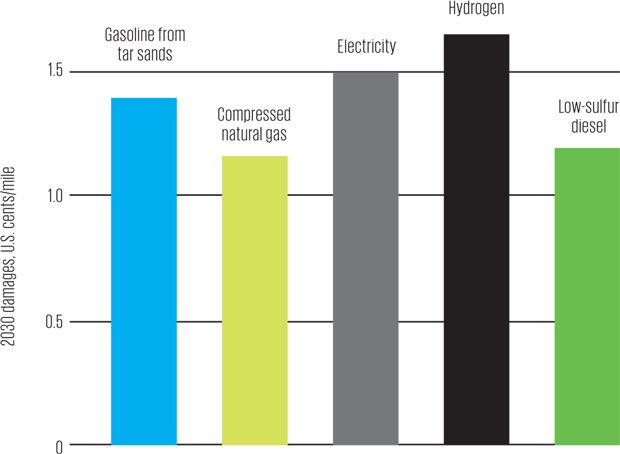PEV:
Is the charging linear or nonlinear?
I would suspect that a PEV would be linear charging since they have the electronics capable of allowing this action. I believe most other vehicles except hybrids, use non-linear charging.
The attached link is lengthy and mildly technical, but I’d suggest taking the time to read it. The simple answer to your “linear” question is no, but there’s more to it than that.
I have yet to read about any battery technology with linear charging. A half charge can be accomplished in a lot less than half time. Not fast enough, but faster. The Tesla battery exchanger looks interesting. It does require the batteries be on the bottom of the car where they can be easily dropped, but everyone loves the Tesla Model S, so maybe it’s no big deal. Great for keeping the mass low, that’s for sure. The tricky part is oenership of the batteries. Some have proposed having the batteries be rented by the driver. That makes sense to me.
@MarkM: Battery swapping sounds good, but you’d run into what economists call “tragedy of the commons”: if I were to use it, I’d be dropping off an expensive! battery pack for a “mystery” pack of unknown age/quality.
Given that, I’d naturally hesitate to do this with a brand new battery, but would be happy to do this with a “mostly used up” battery (hoping that a random battery would be better than what I’ve got). If everybody else behaves in this rarional manner, it would kill the concept.
Crazy idea: why not just electrify the travel infrastructure? (Third rails, etc.) Then you’d only have to size the battery to get you from one “charged” road to another.
Given that every other attempt at electric transportation (subways, trollies, etc) has opted against on-board batteries, it seems odd that autmotive EVs are “wedded” to the concept.
@meanjoe75fan, that’s why the proposed solution has been for the manufacturers to retain ownership of the batteries and rent them to you, probably by both time and mileage. There’s no real way to misuse a battery pack mounted to the bottom of a car, and I’m sure they’d find a way of charging you for physical damage if you somehow did. They could certainly charge you for the electricity needed to recharge them, though I suspect that cost would be negligible compared to all the other expenses. Tesla hasn’t gone to that model yet, though once they start installing these changing stations all over they may need to. They can change the batteries much more quickly than I expected.
Battery technology is advancing quickly enough that it looks like there won’t be any good reason for complicated/expensive infrastructure projects. The scientists in this field all say we can double capacities with current technologies, and far more dramatic increases are achievable. I’m starting to get optimistic about batteries. I wasn’t a few years ago.
I envision batteries with liquid electrodes.
Instead of recharging drain out the spent fluid(s) and pump in fresh.
The spent electrode-liquids can be electrically rejuvenated at the changing station.
@circuitsmith that one is a serious possibility, though some of the more promising battery technologies aren’t liquid-based, so we might have to replace the whole thing. That changing station Tesla made is impressively fast. The problem is going to be having an adequate number. When most people are charging at home (and maybe at work) only long-distance drivers need them. I suppose every dealer will have one and they’ll be at reasonable intervals along major highways. My guess is it will be fairly expensive.
For those who think EVs are some kind of magic bullet for our pollution problems, you may want to read this:
Bottom line, if you include all aspects of the car, its production, use, and disposal, there’s no real difference. If anything, EVs are slightly worse:

Current technologies don’t look that great, but I don’t know anyone sensible who thinks current battery technologies are going to be in use in a decade. Or much else that article cited, really. This is a rapidly evolving field. I was definitely not optimistic about the potential of batteries until recently, now I’m starting to wonder if I didn’t write them off too soon. It’s also not sensible to draw conclusions about the technologies of future solar cells from current ones. That, too, will change.
I’m all for research to see if those new technologies pay off. I’m against huge subsidies for existing technologies that don’t solve anything.
And note that the study attempted to look at the impacts in 2030, not today.
That’s kinda obvious However, unless taxpayers do pay huge subsidies, then we will know that the technologies wouldn’t work.
No, plenty of new technologies haven’t required huge subsidies. Research $$, sure.
It’s easy to pour our tax money down the drain, look at corn based ethanol.
forgot about ethanol.
BTW, Farm bill is still in limbo.